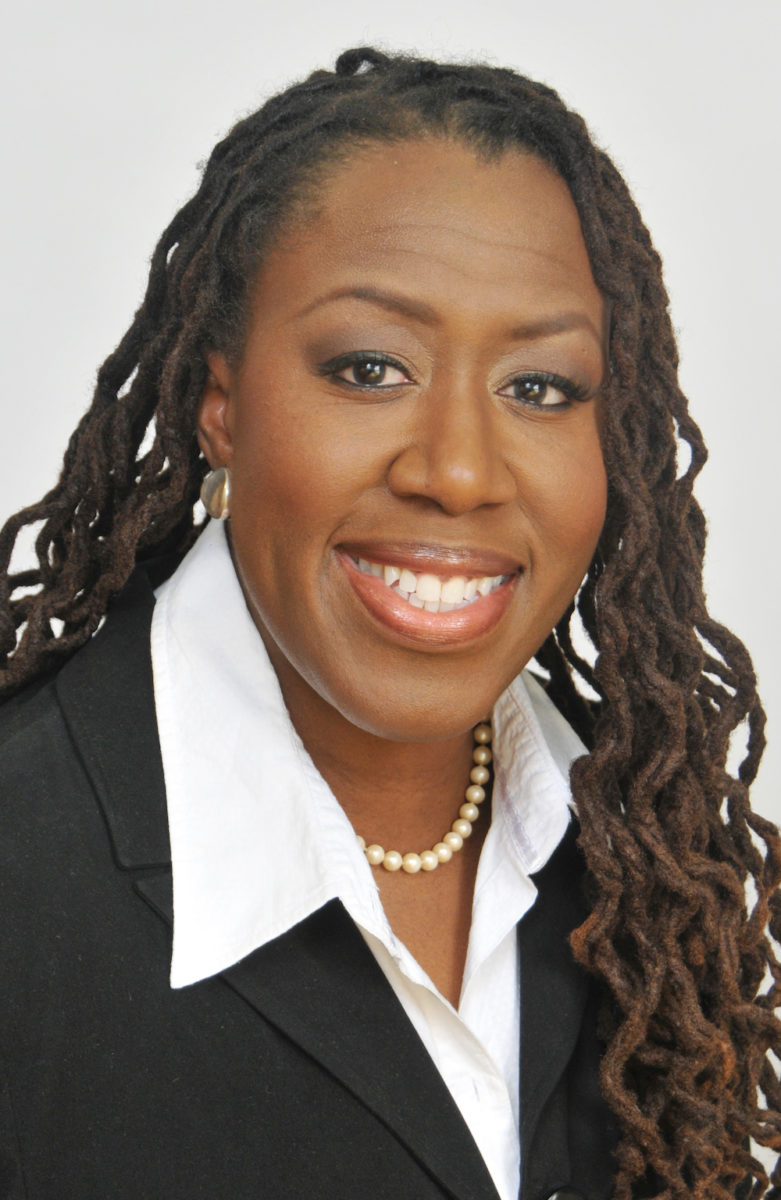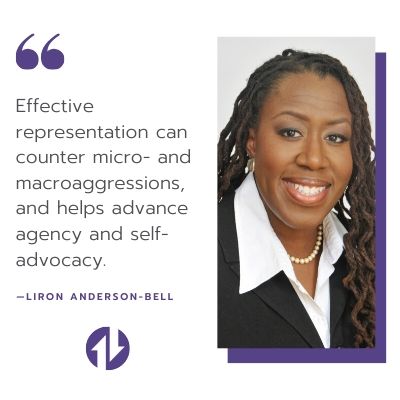Pedagogy amid pandemic and protest
 June 3, 2020
Category: Featured, Long, Purpose
June 3, 2020
Category: Featured, Long, Purpose
Disclosures
This guest column was written by LiRon Anderson-Bell, a strategic communication and digital media executive and university educator.In the summer of 2017, after two exciting decades as a strategic communications pro, I jumped at the opportunity to join the ranks of educators committed to positively influencing the pipeline of new public relations practitioners
I joined the faculty at Temple University’s Klein College of Media and Communication to teach fulltime in the department of advertising and public relations. Now, as I approach my three-year anniversary, we are in the midst of what feels like a nationwide tipping point in mobilization against systemic racism and white supremacy and on the heels of a global pandemic that has killed over 100,000 domestically.
Shortly after I settled in three years ago, holding fast to my belief that teaching is simultaneously a privilege and a great responsibility, I crafted my teaching philosophy — a personal essay that lays out a college instructor’s pedagogical approach and beliefs about how learning and teaching should happen on their watch.
Naturally, I listed common educator priorities like connecting theory with applied practice, identifying skill gaps, and curative approaches to self-improvement and proficiency-building in students. However, even as a new teacher, I felt it was important to also include a commitment to ensuring all students were armed with realistic impressions of their responsibilities as PR pros.
From courses that boost students’ writing skills through case study analysis, to those that tackle the importance of ethical PR practice or resisting racism, exclusion, discrimination and marginalization in the industry, my classroom presents an opportunity for me to share the highs and lows of work experiences in this industry.
Media platforms ensure that we see everything in real time, and I always ask my students to acknowledge the inordinate influence the media industry has over the way members of society understand, classify and interact with the world.
Current events offer two rare opportunities to see if my philosophy is serviceable, starting with the COVID-19 pandemic.
I taught my final live courses on March 12, as we prepared to launch mandatory online instruction to support social distancing. Most of my spring was focused on helping students succeed in a previously unfathomable situation.
Amid the adjustments, I initially found ways to incorporate our circumstances into class discussions and learning objectives. As their inboxes and social media timelines flooded with messages from consumer brands, entertainment services, food vendors and other organizations eager to tell us all about their responses to COVID-19, my students put on their PR pro hats to evaluate the outreach campaigns.
They rightly identified shallow newsjacks that barely concealed a desire to loosen our fingers from stimulus mini-windfalls. They also picked out the precise keywords and reasons why other campaigns landed more authentically with them, perhaps earning the sender’s organization a spot on the list of places students might still patronize.
As the semester wrapped up, concerns related to issues like internships for underclassmen and full-time jobs for seniors took over for students.
They watched media outlets they had previously pitched for course projects fold in a matter of weeks. They heard about their dream agencies losing accounts and letting staff go. What could they do when no one was even interviewing, much less hiring? Seniors wondered if they could hang on long enough to see the avalanche of PR job openings predicted once shelter-in-place restrictions are lifted.
With the help of dedicated career development teams and concentrated efforts to keep students connected to employment resources, we ended the semester in a place of tentative reassurance. I was worried for them, but proud of their intelligence, tenacity and resilience.
The second test to my teaching philosophy will likely come this fall.
We now know that while the nation was mostly focused on COVID-19 prevention protocols, a number of racist — and initially underreported — killings of African Americans occurred, back to back. Grassroots activists eventually succeeded in getting national attention on these deaths. Three in particular ultimately served as a flashpoint for the country — the February 23 killing of Ahmaud Arbery; the March 13 killing of Breonna Taylor; and the May 25 killing of George Floyd.
The country is now roiling in protests and uprisings, again demanding an end to police brutality and systemic racism.
The demographics of my school’s student population ensures high likelihood of intersectionality across many populations that experience oppression based on their race, ethnicity, gender, sexual orientation, class, religion, ability, and more. My semester may be over, but I know my students are watching as the adults they depend on to make the world livable figure out what to do. They will be watching when we return to campus in the fall, too.
My experience as a Black woman in an enduringly white profession contains valuable teaching moments.
It is imperative that PR practitioners, the industry’s storytellers, operate with a deep commitment to fostering diversity, inclusion, equity and access.
Effective representation can counter micro- and macroaggressions, and helps advance agency and self-advocacy. It is not lost on me that each successive semester, I see higher numbers of African American and Latinx female students in my courses.
My students know African Americans and Latinxs make up only 10% of PR pros, Asian American representation is even lower, and the number of disabled practitioners is effectively too low to measure.
Thankfully, they also understand the business imperative and strategic advantage of diversity and inclusion in organizations.
I will also be watching, as they enter the workforce as interns and full-time employees. I hope they will remember it is imperative that PR practitioners, the industry’s storytellers, operate with a deep commitment to fostering diversity, inclusion, equity and access in the profession and the intersectional world we live in.
Someone’s life may depend on it.
Project
Philadelphia Uprising 2020Trending News











